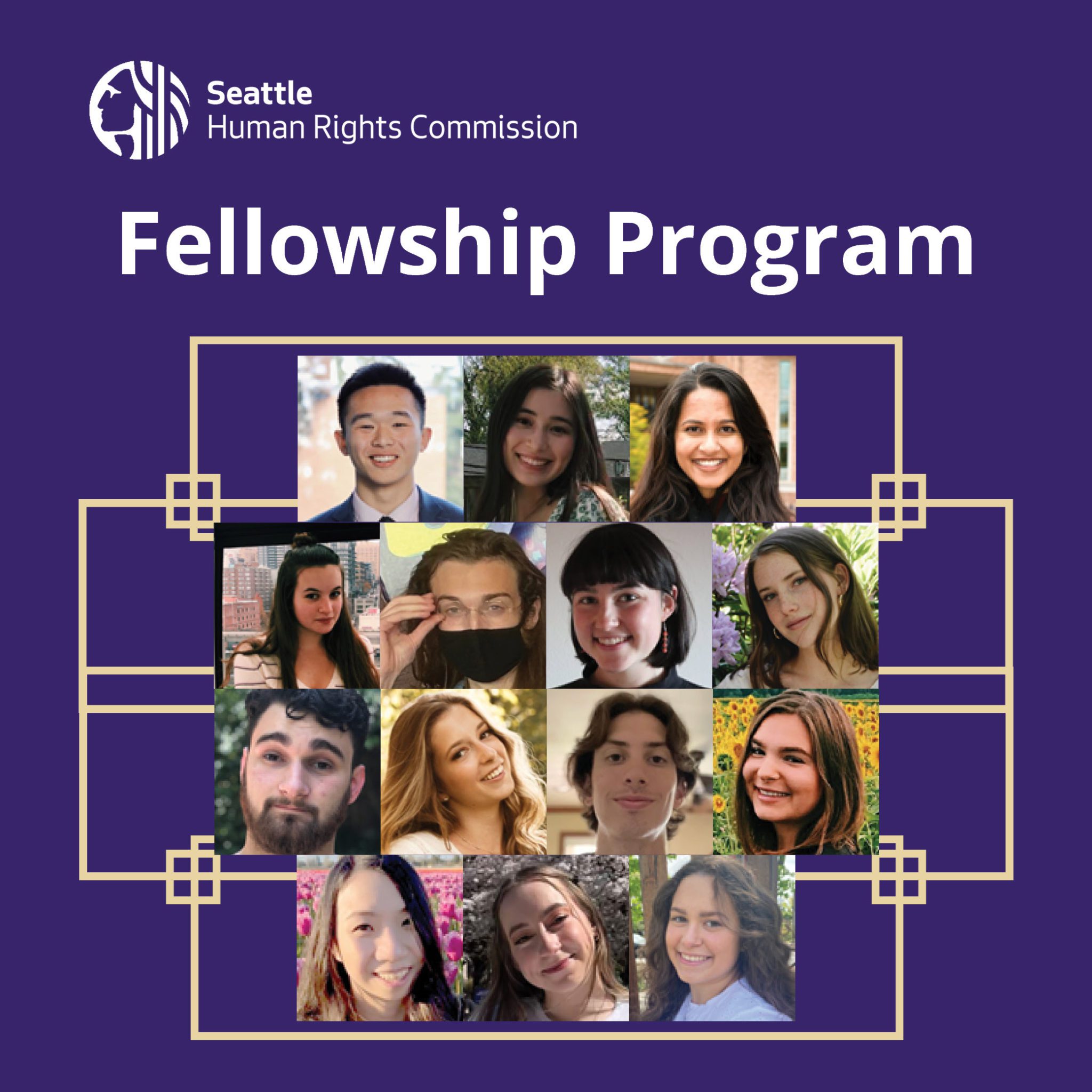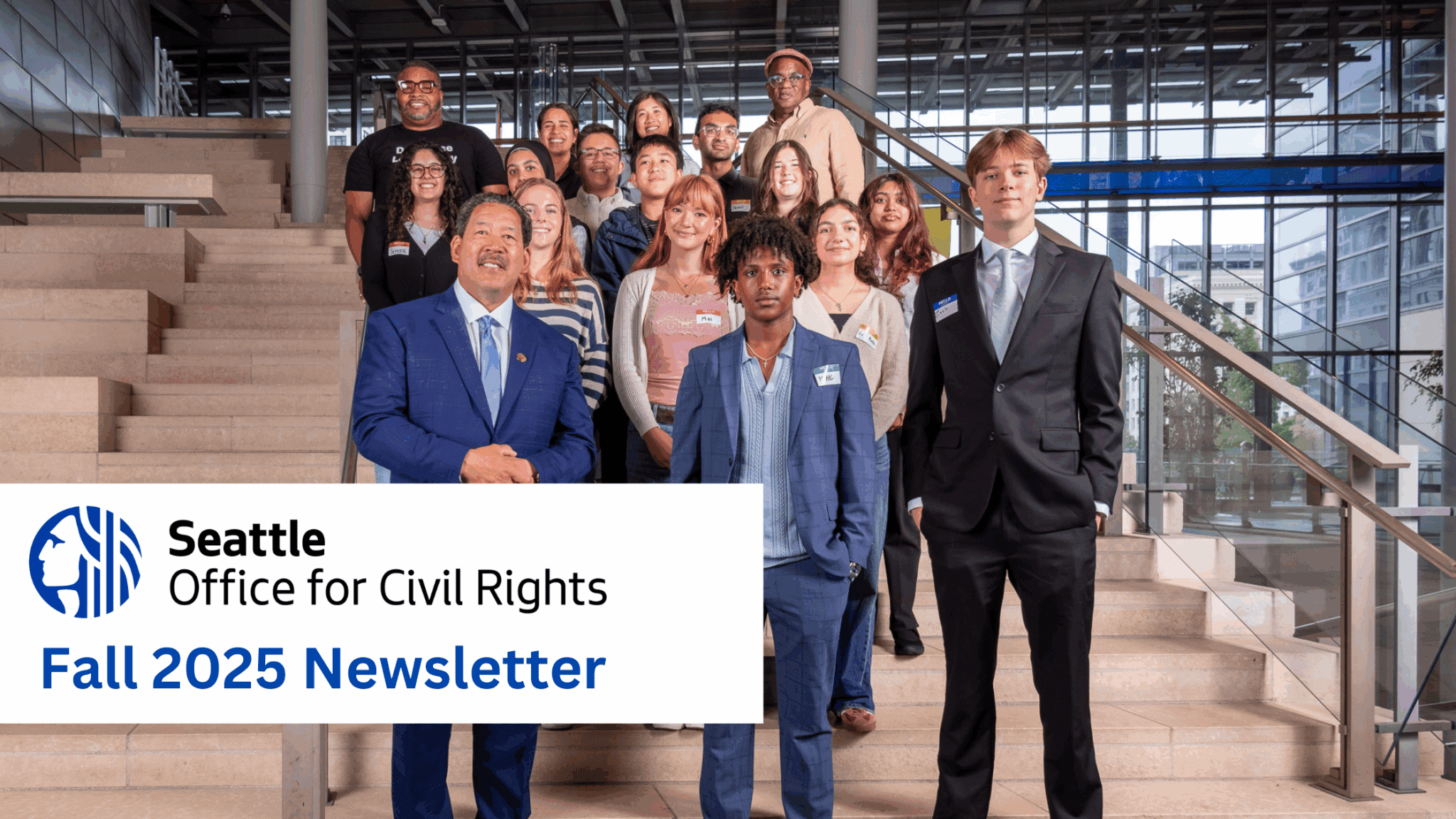
FOR IMMEDIATE RELEASE, July 21, 2021
CONTACT: Co-Chair Ty Grandison, Commissioner Claire Guilmette, Commissioner Robel Mulugeta
In November of 2020, the leadership team of the Seattle Human Rights Commission piloted a Fellowship program to accelerate progress on core local human rights issues, deepen connection to community, and foster the next generation of human rights advocates.
Partnering with the different departments and institutions in the University of Washington, the Commission executed a rigorous outreach and review process to select fourteen students from a competitive field of applicants.
The Fellows were organized into four teams:
- Human Trafficking – exploring the issue in the region;
- Human Rights ScoreCard – creating an evaluation framework for those seeking office;
- Human Rights City – examining the City of Seattle’s progress towards being a human rights city, since its self-designation on December 14th, 2012; and
- Criminal Legal Reform – focusing on the human rights ramifications of charging youth as adults.
The Fellowship program lasted from January through June of 2021. The Criminal Legal Reform team was supervised by Commissioners Claire Guilmette and Robel Mulugeta. The other teams were supervised by Commissioner Ty Grandison.
Each team did background research, conducted interviews with community organizations and city stakeholders, and wrote a report on each of the topics that they investigated.
The report from the Human Trafficking team starts by demystifying human trafficking, presents the history of human trafficking in the region, discusses anti-trafficking tools, highlights existing models used to address human trafficking, and provides a set of recommendations for the City of Seattle and King County to better support survivors of human trafficking. The report urges the City and County to invest in four key areas: housing, preventative education, mental health services, and outreach technology.
The report from the Human Rights Scorecard team presents a preliminary framework that attempts to externalize and quantify the human rights positions of current and future office holders. The team’s methodology involved deriving a tractable set of human rights dimensions to evaluate each individual based on the 30 Articles of the United Nations Declaration of Human Rights, determining sources of evidence that allow the team to substantiate an individual’s supportive actions for each dimension, and constructing a scoring framework that allows for evaluation and scoring based on candidate actions. At the end of the report, the team applies the framework to the 2021 Seattle Mayoral candidates and presents the results.
The report from the Human Rights City team presents the definitions of human rights particularly through the lens of the United Nations Declaration of Human Rights, reiterates the importance of human rights in today’s world, discusses the concept of and provides examples for an exemplary human rights city, delves into an analysis of the City of Seattle, and provides City recommendations. Among its many recommendations in the coming report, the team advised that the City should design and implement a human rights governance structure for City government.
The report from the Criminal Legal Reform team provides a foundation of the history and inner workings of the juvenile justice system and the problematic practice of auto decline or charging a child as an adult. The report recommends directing policy changes to push the complete removal of auto decline and to improve court practices, investing in communities and the use of alternative community programs instead of prison, and the removal of the current culture and practice of the school-to-prison pipeline through policy and school environment.
The full reports from each team will be publicly released in late July 2021.
We hope that this program will be a template that can be supported by the City, scaled across all City of Seattle Commissions, and replicated in other municipalities.
The Inaugural Fellows class includes:






